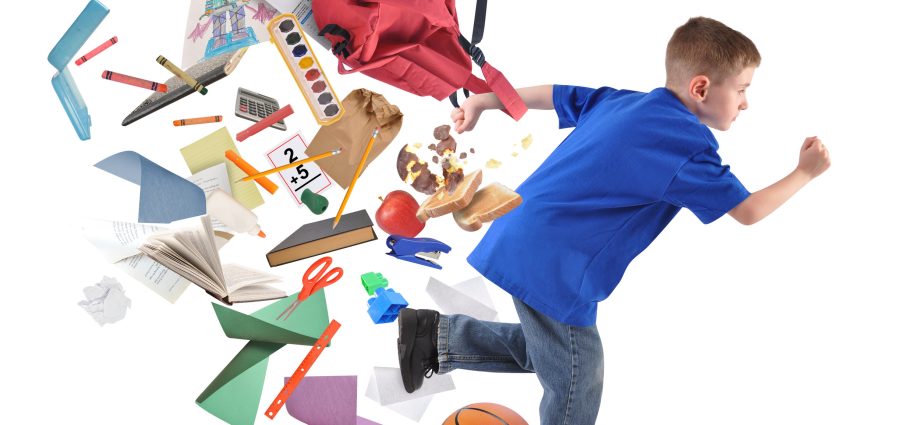Scattered things, a diary forgotten at home, a lost shift … Many children, to the great annoyance of their parents, behave in a completely unorganized way. Psychotherapist and child development specialist Victoria Prudey gives simple and useful recommendations on how to teach a child to be independent.
Over the years of working as a psychotherapist, Victoria Prudey has met many clients and heard about almost all the problems associated with their behavior and development. One of the most common concerns among parents is the disorganization of their children.
“When parents with children come to my office, I often hear “take off your jacket, hang up your jacket, take off your shoes, go to the toilet, wash your hands”, and a few minutes later the same parents complain to me that their son or daughter constantly forgets the lunch box at home , diary or notebooks, they constantly lose books, hats and water bottles, they forget to do their homework,” she shares. Her main recommendation, which always surprises parents, is to stop. Stop acting as a GPS for your child. Why?
Reminders from elders really serve as an external navigation system for children, guiding them through each day of life. By working with such GPS, parents take on the responsibility of the child and do not allow him to develop organizational skills. Reminders literally “turn off” his brain, and without them the child is no longer ready to remember and do something on his own initiative, he has no motivation.
Parents condone the child’s innate weakness by providing the offspring with a continuous stream of guidance.
But in real life, he will not have an external GPS, always ready to help carry out the necessary tasks and make plans. For example, a school teacher has an average of 25 students in a class, and he cannot pay special attention to everyone. Alas, children accustomed to external control are lost in its absence, their brain is not adapted to independently solve such problems.
“Parents often emphasize that they have to be reminded precisely because the child is disorganized,” notes Victoria Prudey. “But if the parents over the past five years have constantly reminded the child to wash their hands after the toilet, and he still does not remember this himself, then such a parenting strategy does not work.”
There are children who are not naturally self-organized, and parents who indulge in their innate weakness, acting as a GPS and providing the offspring with a continuous stream of instructions. However, reminds the therapist, these skills can be taught and need to be practiced regularly, but not through reminders.
Victoria Pruday offers strategies for parents to help their son or daughter use their own mind.
The child must someday face the consequences of his disorganization and learn from his own mistakes.
- Teach your child to use the calendar. This skill will give him self-confidence and help him become completely independent by the day when he has to organize his time independently of you.
- Make a list of daily activities: morning exercise, getting ready for school, doing homework, getting ready for bed. This will help «turn on» his memory and accustom him to a certain sequence.
- Come up with a system of rewards for the success your son or daughter has achieved along the way. When you find that the to-do list is getting done on its own and on time, be sure to reward it with a prize or at least a kind word. Positive reinforcement works much better than negative reinforcement, so it’s better to find something to praise for than to scold.
- Help him provide himself with additional tools for organization, such as folders with stickers “Homework. Done» and «Homework. Gotta do it.» Add an element of play — when buying the right items, let the child choose the colors and options to their liking.
- Connect your child to your own organizational processes — put together a shopping list for the whole family, sort laundry for laundry, prepare food according to a recipe, and so on.
- Let him make mistakes. He must someday face the consequences of his disorganization and learn from his own mistakes. Do not follow him to school with a diary or a lunch box if he regularly forgets them at home.
“Help your child become their own GPS,” Victoria Prudey addresses parents. “You will teach him an invaluable lesson that will be of great benefit when he grows up and begins to cope with much more complex responsibilities.” You will be surprised how independent your seemingly unorganized child can be.
About the author: Victoria Prudey is a psychotherapist working with parent-child relationships.










